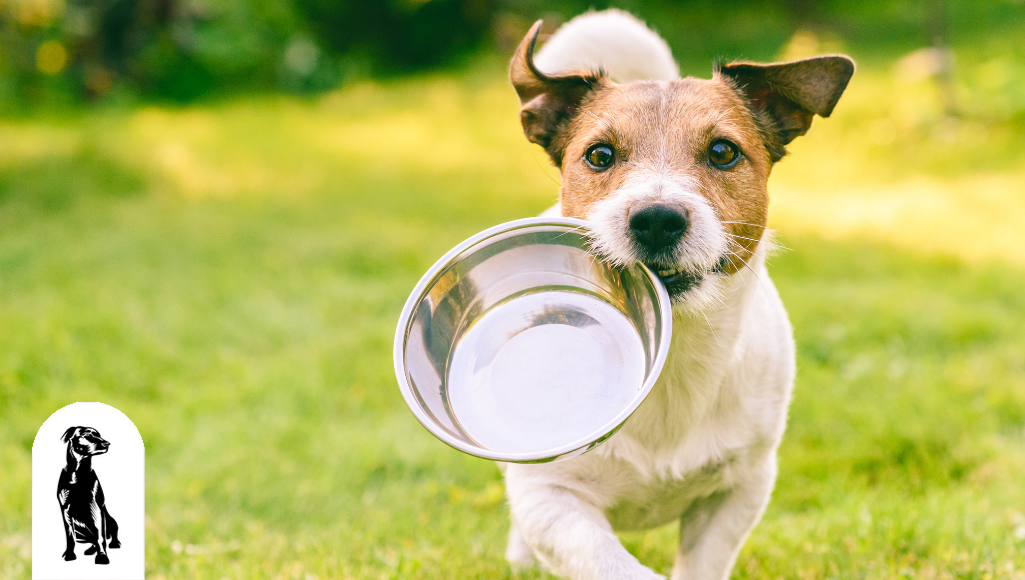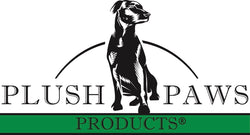
Whether you're buying dog food for your furry friend of a few years or one that's brand new, it's essential to know what kind of food is best.
You’ll want dog food that will provide your dog with proper nutrition. Some dogs may have sensitive stomachs, others may require grain-free options, and some dogs are excited for whatever food ends up in their bowl. However, making sure your pup is getting proper nutrition in whatever stage of life is vital for their health.
Keep reading to learn more about the ingredients you should look for, steer clear of, and everything in between.
Ingredients to Look For
According to Pet Butler, for a typical adult dog to maintain good health, food should include at least 18% protein, 5% fat, and the maximum percentages of crude fiber and moisture. Many dogs will also require other nutrients like calcium, sodium, and linoleic acid, which all help with bone growth. So now that we know what amount of nutrients the typical dog requires, let's look at some of the common ingredients in dog food that will provide said nutrients. When buying dog food, you should look for the following ingredients:

- Meat - Chicken, beef, and fish are most commonly found, but venison, lamb, and rabbit meats are also excellent sources of protein.
- Grains - As long as your dog does not have a sensitivity to grains, grains and carbs can give your dog some long-lasting energy while aiding in their digestion. The best grain ingredients are rice, oats, barley, and peas.
- Fruits and vegetables - Fruits and veggies aren't necessarily essential to your dog's diet. Still, they will serve them with plenty of fiber, vitamins, minerals, and antioxidants that will contribute to their overall health. Sweet potatoes, apples, and blueberries are examples of fruits and vegetables that you might find in dog foods.
- Water - While dried dog food is the most common, you should still look for a kibble with high moisture content. That way, your dog receives hydration both from its food and drinking water.
- Vitamins, minerals, and nutrients - While these won't be found in the ingredients list, you should look for them on the nutrition label. Look for vitamins A, B, and E. Other vitamins are a bonus but not essential. Minerals you should look for are zinc, iron, potassium, calcium, and manganese. Essential nutrients are L-carnitine, and DL-methionine, which provide cellular production of energy and essential amino acids.
Ingredients to Avoid
When buying dog food, make sure to check the nutrition label and ingredient list to ensure that the food does not contain any of the following harmful ingredients:
- Artificial preservatives - Commonly used ones are Ethoxyquin, BHA, and BHT, all of which have been linked to causing future health problems.
- Artificial food coloring - Blue 2, Red 40, or Yellow 5 have all been found in dog foods even though experts have said that these artificial colors can cause problems like allergies and hyperactivity. While extensive research has not been done, it's always best to err on the side of caution, especially since these dyes are not essential or beneficial to a dog's diet.
- MSG, Corn Syrup, and other unnecessary flavor enhancers - Your pup likely doesn't care if their food is sweeter or saltier as long as the food you choose has an ample amount of their preferred meat source. They don't add any nutritional value to their food, and since these flavor enhancers are not exactly healthy for humans, it's safe to say they are not great for our furry friends as well.
Grain or No Grain?
As established earlier in the article, high-quality grains are great sources of carbohydrates that will fuel your dog. However, it's important to be aware of how much grains are going into their food. Grains can often be used as filler ingredients which may mean your pup is getting less of their required proteins from their food; when buying dog food, make sure to carefully study the nutrition label for those percentages that we mentioned earlier in the article.

So, why would someone opt for grain-free dog food if it's perfectly healthy for dogs to consume? Well, according to PetMD, dogs with sensitive stomachs or dogs that are suspected of having food allergies, may require a veterinarian to recommend a grain-free diet. If you think your pet may require a grain-free diet, we suggest speaking with your veterinarian before making any significant changes to their diet.
What About Treats and Bones?
Treats and bones are a great way to reward your pet. However, you'll find that some of the treats and bones you can pick up at your local pet store aren't exactly good for your pet's health. In treats, you should avoid all the listed ingredients above as well as these common ingredients:
- Animal by-product
- Xylitol and other artificial sweeteners
- Carrageenan
- Added salt
- Nondescript fats
As for bones, it's also unfortunate that many companies sell bones that have harmful ingredients or can cause stomach problems. Here are the types of bones that we suggest staying away from:
- Rawhide
- Cooked bones
- Raw pork bones
Look for bones that are either "bone alternatives" or rawhide-free. And if you give your dog a bone for chewing, make sure you supervise them to ensure their safety at all times.
Plush Paws Products Cares About Your Pup's Health
We hope that this quick educational guide will help when you're buying dog food for your four-legged friends. Another thing that you can use to supplement your dog's health is a daily multivitamin. At Plush Paws Products, we create health products made with natural and beneficial ingredients that your pup is sure to love. Our multivitamin includes the following vitamins, nutrients, and minerals, all in a soft chew beef-flavored tablet:
- Vitamin D
- Calcium
- Vitamin A
- Vitamin B-1 (Thiamine)
- Folic Acid
- Riboflavin
- Glucosamine
- Chondroitin
- MSM
- Vitamin B12
- Vitamin B6
- Niacin
- Biotin
- Fish Oil
- Choline
- Curcumin
So, if you're wondering if your dog is getting their fair share of nutrients, don't hesitate to add a multivitamin to its daily intake. We ship worldwide, so every pup has the chance for a happy and healthy diet! Shop our multivitamin and other health products today!

